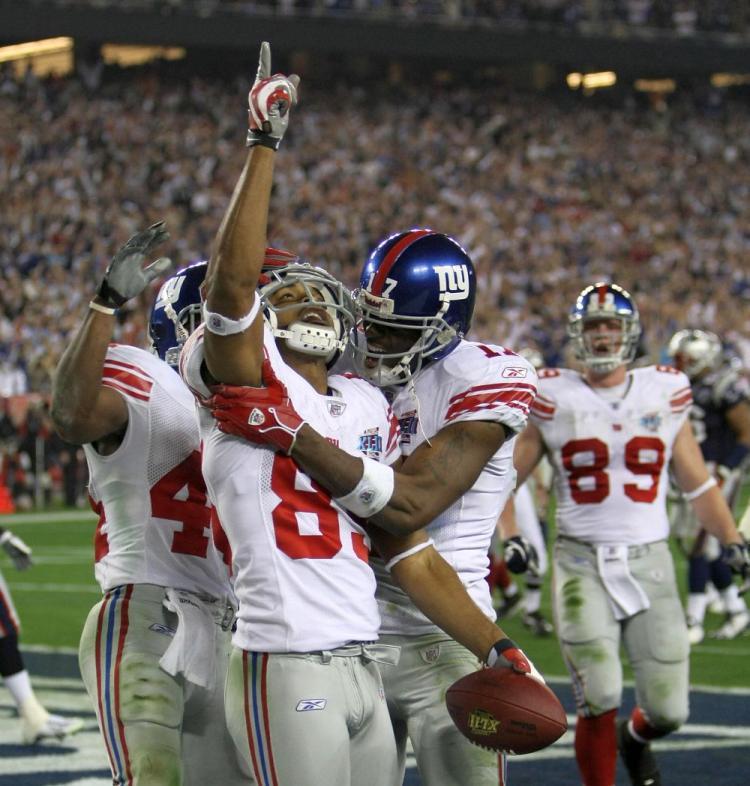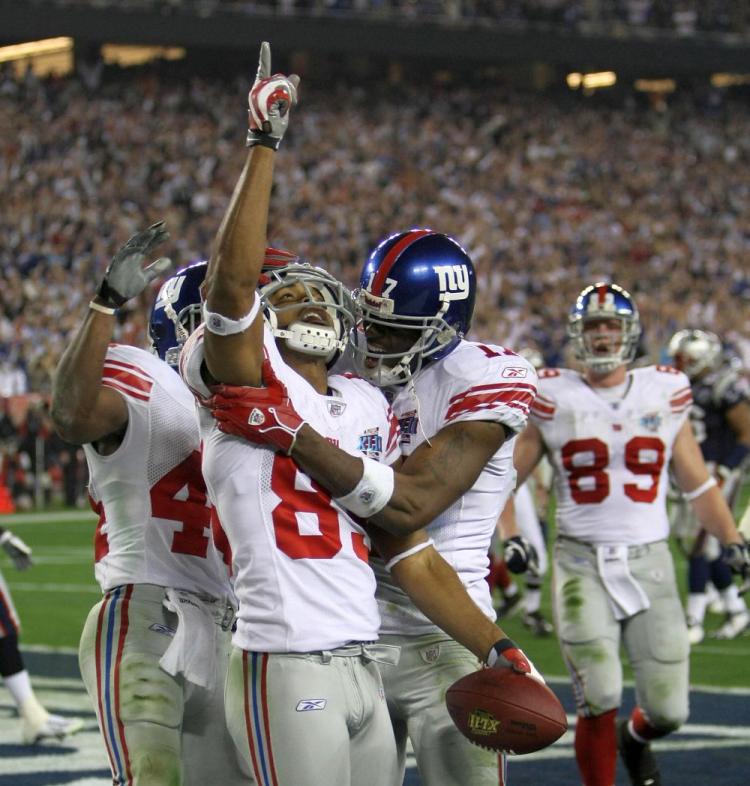Originally introduced before the 1970 AFL-NFL merger, the wildcard system has gone through a couple of revisions over the years but essentially, the wildcard team is defined as a non-division winning playoff team.
Nine wildcard teams have gone on to reach the Super Bowl with five having captured the Vince Lombardi trophy.
The first wildcard team to make it all the way to the title game was the 1975 Dallas Cowboys, who defeated the Minnesota Vikings and Los Angeles Rams in the playoffs before succumbing to the Pittsburgh Steelers in Super Bowl X.
The first time a wildcard team captured a Super Bowl came in 1980 when the Jim Plunkett-led Oakland Raiders defeated the Houston Oilers, Cleveland Browns, San Diego Chargers, and Philadelphia Eagles en route to the title.
Hall of Fame QB John Elway won his first Super Bowl with the wildcard Denver Broncos in 1997.
The first decade of the 21st century saw three wildcard teams making it all the way to the championship and all three took home the Vince Lombardi Trophy.
The Tennessee Titans won the former AFC Central Division in 2000, a game up on the Baltimore Ravens, but it was the Ravens that would go on a run that would culminate in a 34–7 victory over the New York Giants in Super Bowl XXXV.
The Pittsburgh Steelers would win three road games during the postseason before capturing their fifth Super Bowl with a 21–10 win over the Seattle Seahawks in 2005.
And most recently, the New England Patriots’ quest for an undefeated season was thwarted when the 2007 wildcard New York Giants went on a 3–0 postseason road win streak and then won Super Bowl XLII by a final of 17–14.
The road to the Super Bowl is smoother for the top two seeds in each conference—after all, the conference’s No. 1 and No. 2 have byes, which enable wounded players extra time to heal after a 16-game schedule. Also, no travel is required of them.
Wildcard teams have the disadvantage of playing an extra game and being the lowest teams on the playoff totem pole, they will play their postseason games on the road.
Only three wildcard teams have ever won three-straight on the road to reach the Super Bowl—the 1985 New England Patriots, the ‘05 Steelers and the ‘07 Giants.
There have been 14 wildcard teams since the 2002 realignment and those 14 have racked up a playoff record of 21–27.
The New York Jets and Baltimore Ravens have earned wildcards for the AFC this season while the Green Bay Packers and Philadelphia Eagles have done the same in the NFC.
How will they fare? Based on history they have a hard road ahead of them.
Nine wildcard teams have gone on to reach the Super Bowl with five having captured the Vince Lombardi trophy.
The first wildcard team to make it all the way to the title game was the 1975 Dallas Cowboys, who defeated the Minnesota Vikings and Los Angeles Rams in the playoffs before succumbing to the Pittsburgh Steelers in Super Bowl X.
The first time a wildcard team captured a Super Bowl came in 1980 when the Jim Plunkett-led Oakland Raiders defeated the Houston Oilers, Cleveland Browns, San Diego Chargers, and Philadelphia Eagles en route to the title.
Hall of Fame QB John Elway won his first Super Bowl with the wildcard Denver Broncos in 1997.
The first decade of the 21st century saw three wildcard teams making it all the way to the championship and all three took home the Vince Lombardi Trophy.
The Tennessee Titans won the former AFC Central Division in 2000, a game up on the Baltimore Ravens, but it was the Ravens that would go on a run that would culminate in a 34–7 victory over the New York Giants in Super Bowl XXXV.
The Pittsburgh Steelers would win three road games during the postseason before capturing their fifth Super Bowl with a 21–10 win over the Seattle Seahawks in 2005.
And most recently, the New England Patriots’ quest for an undefeated season was thwarted when the 2007 wildcard New York Giants went on a 3–0 postseason road win streak and then won Super Bowl XLII by a final of 17–14.
Odds Stacked Against
Ever since the league expanded to 32 teams and four divisions back in 2002, four division winners have made the postseason along with two wildcards. Aside from the aforementioned Steelers and Giants, wildcard teams haven’t fared too well.The road to the Super Bowl is smoother for the top two seeds in each conference—after all, the conference’s No. 1 and No. 2 have byes, which enable wounded players extra time to heal after a 16-game schedule. Also, no travel is required of them.
Wildcard teams have the disadvantage of playing an extra game and being the lowest teams on the playoff totem pole, they will play their postseason games on the road.
Only three wildcard teams have ever won three-straight on the road to reach the Super Bowl—the 1985 New England Patriots, the ‘05 Steelers and the ‘07 Giants.
There have been 14 wildcard teams since the 2002 realignment and those 14 have racked up a playoff record of 21–27.
The New York Jets and Baltimore Ravens have earned wildcards for the AFC this season while the Green Bay Packers and Philadelphia Eagles have done the same in the NFC.
How will they fare? Based on history they have a hard road ahead of them.






